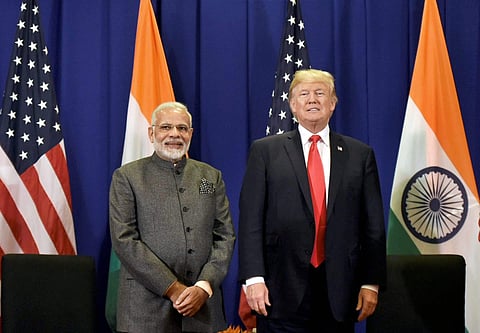

NEW DELHI: With the Trump administration finally pulling the plug on the preferential trade regime that offered duty-free access to Indian goods worth $5.6 billion, exports of farm, marine and handicraft products could take a big hit.
Instituted on January 1, 1976, the Generalized System of Preference (GSP) programme promotes economic growth in the developing world by providing duty-free access to over 3,500 products into specified countries. Till now, India alone exported 1,784 products duty-free into the US.
“India has implemented a wide array of trade barriers... Despite intensive engagement, India has failed to take the necessary steps to meet the GSP criterion,” the office of the United States Trade Representative said in a statement late on Monday. The US gave India 60 days to exit the GSP regime.
While the Commerce Ministry sought to play down the impact, others were not on the same page.
“The withdrawal will not have a significant impact on India’s exports to the US,” Commerce Secretary Anup Wadhawan said adding that India does not plan to impose retaliatory tariffs on the US goods.
But Ajay Sahai, director general of the Federation of Indian Export Organisations (FIEO), said: “It would be incorrect to say there would be no impact. We fear our labour-intensive exports of agriculture, marine and handicraft products would be hit hard.”
Last June, India announced retaliatory customs duties on 29 US products, including almond, walnut and pulses from August 4, but they were never implemented.
According to the FIEO, India gets tariff preference on 5,111 out of 18,770 tariff lines in the US. On 2,165 of them, the tariff advantage was 4 per cent or more.
“While we hope the exporters would be able to absorb the duty loss where it is 2-3 per cent, we need to provide fiscal support to those products where GSP tariff advantage was significant, particularly in the labour-intensive sector,” said FIEO president Ganesh Kumar Gupta.
E-comm policy the trigger
“The latest trigger was the new e-commerce policy, which had been strongly protested by American retailers like e-bay and Amazon,” an official from the Commerce Ministry told this paper